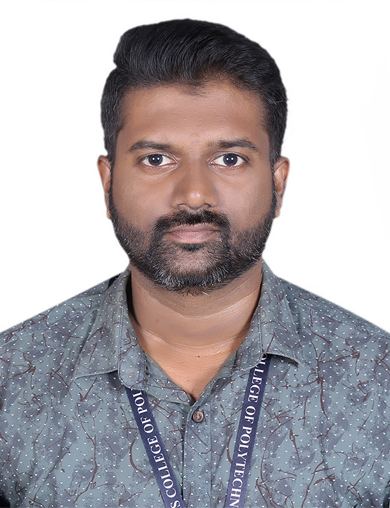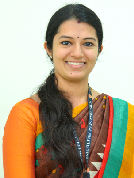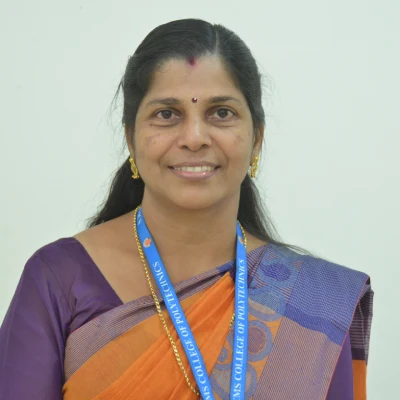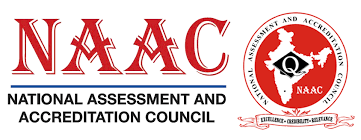Diploma in Civil Engineering
Home » Diploma in Civil Engineering
Diploma in Civil Engineering
Dive into the dynamic world of infrastructure with the Civil Engineering Department at SCMS College of Polytechnics. Our program is designed to equip you with a solid foundation in civil engineering principles, enabling you to devise innovative solutions for today’s complex civil engineering challenges. Prepare to transform the landscapes of tomorrow with skills honed at SCMS.
Vision
To provide best quality education to students of Civil Engineering Department and mould them into pioneers of a caring community of inspired learners who serve with mastery for a self-sustaining nation.
Mission
To impart quality education in civil engineering with the help of practically oriented courses and industry interaction.
Vision
Mission
To impart quality education in civil engineering with the help of practically oriented courses and industry interaction
To raise ethically responsible professionals to serve the industry and society.
To create engineers capable of initiating innovate solutions for sustainable engineering practice.
Program Overview
Civil Engineering is a dynamic field that spans the planning, design, construction, maintenance, and operation of the vital infrastructure integral to our daily lives.
At the Department of Civil Engineering of SCMS College of Polytechnics, Vaikkara, we provide students with a solid foundation in knowledge to design solutions for complex civil engineering problems. Our department creates an ideal environment for students to prepare for an innovative and challenging future.
Survey camps and practical training, integral to our curriculum, aim to familiarize students with real-time problems. Students gain practical experience through field visits to industries, construction sites, dams and irrigation structures. They are exposed to key areas such as Structural Engineering, Transportation Engineering, Irrigation Engineering, Environmental Engineering and Construction Technology & Management. Together, let’s build a strong future.
Civil Engineering Students Association (CESA)
The association showcases Civil Construction models and conducts workshops to impart practical knowledge about the latest techniques used in the Civil Engineering field.
List of Subjects
- Communication Skills in English
- Mathematics I
- Applied Physics I
- Applied Chemistry
- Engineering Graphics
- Applied Physics Lab
- Applied Chemistry Lab
- Introduction to IT systems Lab
- Engineering Workshop Practice
- Sports and Yoga
- Advanced Surveying
- Concrete Technology
- Building Construction
and Construction
Materials - Theory of Structures
- Concrete Technology Lab
- Surveying Lab
- Construction Materials Lab
- Building Drawing and Estimation Lab
- CAD Lab
- Transportation Engineering Lab
- Structural Engineering Drawing Lab
- Construction Management and Safety Engineering
- Design of Steel and RCC Structures
- Transportation Engineering
- Habitat Technology
- Ground Improvement Techniques
- Precast and Prestressed Concrete
- Advanced CAD Lab
- Seminar
- Major Project
- Mathematics II
- Applied Physics II
- Environmental Science
- Engineering Mechanics
- Basic Surveying
- Communication Skills in English Lab
- Applied Physics Lab
- Engineering Mechanics Lab
- Basic surveying Lab
- Engineering Workshop Practice
- Geotechnical Engineering
- Hydraulics and Irrigation Engineering
- Estimating & Costing
- Community Skills in Indian knowledge system
- Advanced Surveying Lab
- Hydraulics and Irrigation Engineering Lab
- Estimating and Costing Lab
- Geotechnical Engineering Lab
- Minor Project
- Entrepreneurship and Startup
- Public Health Engineering
- Building Maintenance and Services
- Pavement Design and Maintenance
- Renewable Energy and Environment
- Sustainable Development
- Disaster Management (CE)
- Rural Technology
- Indian Constitution
- Computer Application Lab
- Material Testing Lab (CE)
- Public Health Engineering Lab
- Major Project
The external theory examination of all semesters shall be conducted by the University at the end of each semester. Internal evaluation is to be done by continuous assessment. For all courses without practical total marks of external examination is 80 and total marks of internal evaluation is 20. Marks distribution for external and internal assessments and the components for internal evaluation with their marks are shown below:
For all Courses without Practical
- Marks of external Examination: 80
- Marks of internal evaluation: 20
Components of Internal Evaluation of theory Marks
- Attendance: 5
- Assignment/Seminar/Viva: 5
- Test papers (2×5=10): 10
- Total: 20
For all Courses with Practical
- Marks for external evaluation is 60
- Marks for internal evaluation is 15.
Components of Internal Evaluation Marks
- Attendance: 5
- Assignment/Seminar/Viva: 2
- Test papers (2 x 4): 8
- Total: 15
Components Internal Evaluation of Practical
- Attendance: 2
- Test paper (1 x 4): 4
- Record: 4
- Total: 10
For Projects
- Marks of external evaluation: 80
- Marks of internal evaluation: 20
Assignments are to be done from 1st to 4th semesters. At least one assignment should be done in each semester for all courses.
A student shall present a seminar in the 5th semester for each paper and appear for viva-voce in the 6th semester for each course.
Two test papers are to be conducted in each semester for each course. The evaluations of all components are to be published and are to be acknowledged by the candidates. All documents of internal assessments are to be kept in the college for one year and shall be made available for verification by the University.
Syllabus
Best-in-class content by leading faculty and industry leaders in the form of videos, cases and projects.
Develop expertise in structural analysis, environmental engineering and urban planning. Our curriculum is designed for hands-on, practical learning, equipping you with essential skills and knowledge for a successful career in the civil engineering sector. Dive into the intricacies of sustainable design and infrastructure management, preparing yourself for the challenges of modern urban development.
This program is perfectly suited for those with a passion for shaping the physical world around us. If you are driven by the desire to create sustainable, resilient infrastructure and have a keen interest in urban development, this course is for you. It’s an ideal foundation for aspiring civil engineers, opening doors to a world where design meets functionality in the creation of tomorrow’s urban landscapes.
Affiliations & Accreditations

Government of Kerala

The International Certification Network.
Faculty

ARUNKUMAR K K
HOD, CE

ANJANA G NAIR
Lecturer

SHOBHA MS
Lab Instructor

Gincy George
Objectives and Outcomes
| PEO1 | Fundamentals of mathematics, science and engineering to solve the real time problems and inculcate high professionalism by providing technical and soft skills. |
| PEO2 | Train the students in diversified and applied areas of computer engineering emphasizing analysis and design to create software solutions that can meet current industrial and societal needs. |
| PEO3 | Attain the ability to adapt quickly to new environments, emerging technologies and working in distinct areas with a strong focus on innovation and entrepreneurship. |
| PEO4 | Develop technicians with solid foundation for real time operation and maintenance of computer hardware and networking. |
| PEO5 | The student will have an inclination towards life- long learning and responsibilities to remain current in their profession to foster personal and organizational growth. |
| PSO1 | Apply the knowledge of computer science skills, modern tools, and mathematical methodologies to analyze, develop, and simulate complex systems. |
| PSO2 | Compile acquired knowledge in computer engineering to take up challenges and manage critical scenarios to create innovative career paths. |
| PSO3 | The ability to develop innovative products in the field of computer engineering to meet the societal needs thereby evolving as an eminent entrepreneur. |
| PO1 | Basic and Discipline specific knowledge: Apply knowledge of basic mathematics, science and engineering fundamentals and engineering specialization to solve the engineering problems. |
| PO2 | Problem analysis: Identify and analyse well-defined engineering problems using codified standard methods. |
| PO3 | Design/development of solutions: Design solutions for well-defined technical problems and assist with the design of systems components or processes to meet specified needs. |
| PO4 | Engineering Tools, Experimentation and Testing: Apply modern engineering tools and appropriate technique to conduct standard tests and measurements. Apply modern engineering tools and appropriate technique to conduct standard tests and measurements. |
| PO5 | Engineering practices for society, sustainability and environment: Apply appropriate technology in context of society, sustainability, environment and ethical practices. |
| PO6 | Project Management: Use engineering management principles individually, as a team member or a leader to manage projects and effectively communicate about well-defined engineering activities. |
| PO7 | Life-long learning: Ability to analyse individual needs and engage in updating in the context of technological change. |
| PEO1 | Exhibit leadership skills and teamwork while adhering to the highest ethical and technical standards . |
| PEO2 | Apply technical knowledge for analyzing challenges in the area of civil engineering while ensuring economic benefits to society and less impact to environment. |
| PEO3 | Capability to adapt to innovative and modern construction techniques and softwares in diverse work environments |
| PEO4 | Efficiency to plan, create, and implement small- to large-scale civil engineering projects in a secure, efficient, and sustainable manner. |
| PEO5 | Ability to pursue higher education or entrepreneurship apart from being employable |
| PSO1 | Apply the knowledge of surveying, building materials and structural engineering in the field of civil engineering to develop & manage creative projects |
| PSO2 | Identify and formulate solutions for civil engineering problems that is technically viable, economically and socially acceptable. |
| PSO3 | To plan, analyse, design, supervise, and manage environmentally responsible and sustainable civil engineering projects |
| PO1 | Basic and Discipline specific knowledge: Apply knowledge of basic mathematics, science and engineering fundamentals and engineering specialization to solve the engineering problems. |
| PO2 | Problem analysis: Identify and analyse well-defined engineering problems using codified standard methods. |
| PO3 | Design/ development of solutions: Design solutions for well-defined technical problems and assist with the design of systems components or processes to meet specified needs. |
| PO4 | Engineering Tools, Experimentation and Testing: Apply modern engineering tools and appropriate technique to conduct standard tests and measurements. |
| PO5 | Engineering practices for society, sustainability and environment: Apply appropriate technology in context of society, sustainability, environment and ethical practices. |
| PO6 | Project Management: Use engineering management principles individually, as a team member or a leader to manage projects and effectively communicate about well-defined engineering activities. |
| PO7 | Life-long learning: Ability to analyse individual needs and engage in updating in the context of technological changes. |
Our Placements

MUHAMMED ASHRAF
BATCH : 2019-2022
CIVIL ENGINEERING
BINEESH SUKUMAR ARCHITECTS & PLANNERS, KALOOR

THOMAS SAJU
BATCH : 2019-2022
CIVIL ENGINEERING
JIMITRI SOLUTIONS, MUVATUPUZHA

NIYAS K S
BATCH : 2018-2021
CIVIL ENGINEERING
DGS TECHNICAL SERVICES- ENGINEERING SERVICES

DEVIKRISHNA K H
BATCH : 2019 - 2022
CIVIL ENGINEERING
COCHIN CORPORATION (CONTRACT BASIS)

AKHILA C M
BATCH : 2019-2022
CIVIL ENGINEERING
COCHIN CORPORATION (CONTRACT BASIS)

AJIL KUMAR
BATCH : 2019-2022
CIVIL ENGINEERING
COCHIN CORPORATION (CONTRACT BASIS)
Admissions
Eligibility
- The candidate shall be a citizen of India.
- The candidate shall have passed SSLC/THSLC or equivalent examination, with eligibility for higher studies.
- Candidates who have passed qualifying examination with Mathematics, English and
- A candidate who has taken more than two chances to secure eligibility for higher studies in SSLC/THSLC or equivalent examinations is not eligible for admission
- For CBSE/ICSE/Open school candidates the Marks/Grades obtained in Science is considered for calculating grade in the place of Physics and Chemistry. CBSE school candidates who have passed qualifying examination with Mathematics- Standard are only eligible to apply .
- In the case of CBSE candidates, only the certificates of Board examination shall be accepted as qualifying certificate and such candidates shall submit an undertaking. This undertaking need only be submitted by candidates who have passed CBSE Xth during the period 2010-2018
*Please refer the prospectus issued by SBTE Kerala
Two-year Lateral Entry Diploma
The candidate should satisfy all eligibility requirements mentioned in the DTE prospectus.
Minimum Eligibility: +2/VHSE candidates: Minimum score of 50% in Mathematics, Physics and other relevant mandatory subjects put together. In the case of VHSE, candidate should have separate pass in Physics, Mathematics or additional mathematics and other relevant subjects.
NCVT/SCVT/KGCE candidates: Pass with 50% aggregate marks in 2 year metric courses of NCVT/SCVT/ KGCE.Candidates will be considered for admission to any branch of Engineering and Technology.
How to Apply?
You may apply online by filling the application from the website.
Application fee of Rs.200/- also to be paid online. The application has to be accompanied with the following
documents:
- True copies (Self attested) of Mark Sheet of SSLC/HSE/CBSE/ICSE/ITI or equivalent examination.
- The original certificates should be presented to the Principal at the time of admission. They will be returned to the students only after verifications. Students are requested to keep sufficient number of attested copies of certificates for their use till such time.
Admissions
Eligibility
- The candidate shall be a citizen of India.
- The candidate shall have passed SSLC/THSLC or equivalent examination, with eligibility for higher studies.
- Candidates who have passed qualifying examination with Mathematics, English and
Science subjects are eligible to apply .
- A candidate who has taken more than two chances to secure eligibility for higher studies in SSLC/THSLC or equivalent examinations is not eligible for admission
- For CBSE/ICSE/Open school candidates the Marks/Grades obtained in Science is considered for calculating grade in the place of Physics and Chemistry. CBSE school candidates who have passed qualifying examination with Mathematics- Standard are only eligible to apply .
- In the case of CBSE candidates, only the certificates of Board examination shall be accepted as qualifying certificate and such candidates shall submit an undertaking. This undertaking need only be submitted by candidates who have passed CBSE Xth during the period 2010-2018
*Please refer the prospectus issued by SBTE Kerala
How to Apply?
You may apply online by filling the application from the website.
Application fee of Rs.200/- also to be paid online. The application has to be accompanied with the following
documents:
- True copies (Self attested) of Mark Sheet of SSLC/HSE/CBSE/ICSE/ITI or equivalent examination.
- The original certificates should be presented to the Principal at the time of admission. They will be returned to the students only after verifications. Students are requested to keep sufficient number of attested copies of certificates for their use till such time.
Ready to Engineer Your Future?
Begin Your Journey with Us
Facilities
Activities
LIFE at
SCMS

Admissions
Eligibility
THREE-YEAR DIPLOMA
- The candidate should satisfy all eligibility requirements mentioned in the DTE prospectus for the academic year 2022-23.
- The candidate should have passed SSLC/THSLC or equivalent examination, with eligibility for higher studies.
- Candidates who have passed qualifying examination with Mathematics, Physics, Chemistry and English subjects are eligible to apply. For CBSE/ICSE candidates, the Marks/Grades obtained in Science is considered for calculating grade in Science, in the place of Physics and Chemistry.In the case of CBSE candidates, Mathematics should be “Standard Mathematics” and only the certificates of Board Examination shall be accepted as qualifying certificate and such candidates shall submit an Undertaking at the time of admission and a copy of the same shall be submitted along with the Application.
TWO-YEAR LATERAL ENTRY DIPLOMA
The candidate should satisfy all eligibility requirements mentioned in the DTE prospectus for the academic year 2022-23.
Minimum Eligibility: +2/VHSE candidates: Minimum score of 50% in Mathematics, Physics and other relevant mandatory subjects put together. In the case of VHSE, candidate should have separate pass in Physics, Mathematics or additional mathematics and other relevant subjects. NCVT/SCVT/KGCE candidates: Pass with 50% aggregate marks in 2 year metric courses of NCVT/SCVT/KGCE. Candidates will be considered for admission to any branch of Engineering and Technology.
How to Apply?
You may apply online by filling the application from the website
Application fee of Rs.200/- is to be paid online. Students
are also required to apply in Govt. site
www.polyadmission.org for regular admission and
let for lateral entry admission.
The application has to be
accompanied with the following documents:
True copies (Self attested) of Mark Sheet of SSLC/HSE/CBSE/ICSE/ITI or equivalent examination.
The original certificates should be presented to the Principal at the time of admission. It will be returned to the students only after verifications. Students are requested to keep sufficient number of attested copies of certificates for their use till such time.
Why Study at SCMS ?
SCMS is led by a dedicated team of leaders who provide guidance, support, and drive the institute’s mission of academic excellence and research-driven education.
Alongside the core curriculum, SCMS emphasizes the development of managerial and technological skills, equipping you with a well-rounded education that prepares you for the challenges of the professional world.
SCMS boasts a committed faculty team comprising experienced professors, researchers, and industry experts who provide quality education, mentorship, and guidance throughout your academic journey.
SCMS maintains a disciplined environment that fosters a strong focus on academic pursuits, creating an atmosphere conducive to learning, research, and personal growth.
Interaction of faculty, parents and students arranged each semester to assess the learning difficulties of individual students, if any, and to chalk out remedial programmes to improve their performance.
SCMS offers a valuable educational experience with its well-designed curriculum, research opportunities, industry collaborations, and career support services, ensuring that your investment in education yields long-term benefits for your future.
SCMS provides modern laboratories, advanced equipment, and research facilities, ensuring you have access to cutting-edge resources for hands-on learning and research.
Our Alumni's Career Footprints








